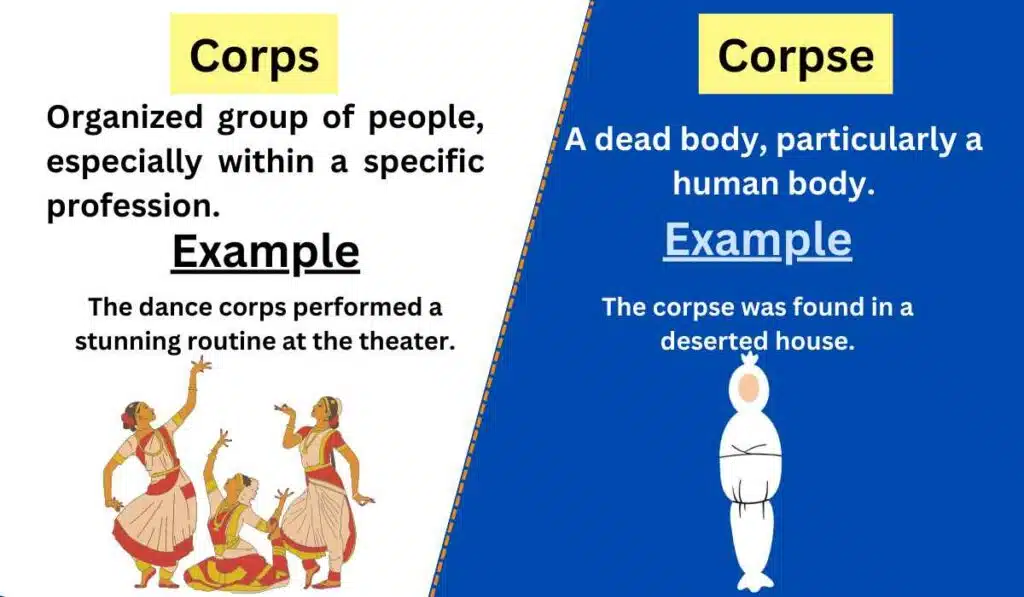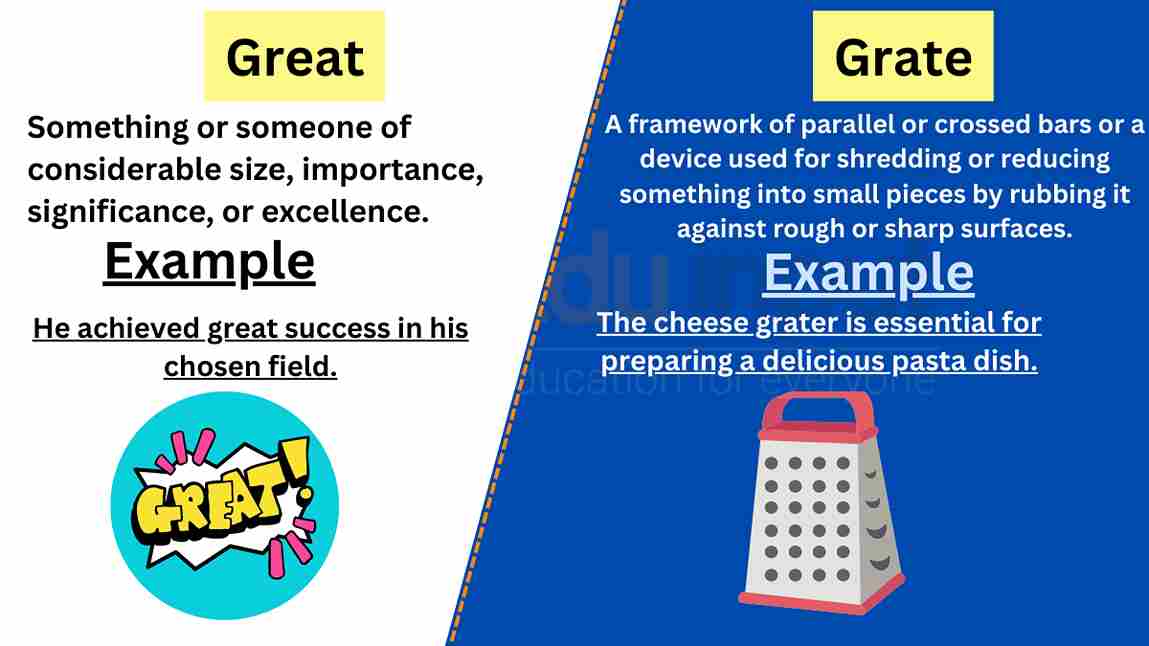Corps vs. Corpse- Difference between with examples
The words “corps” and “corpse” may appear similar in writing, but they have distinct meanings and usage.

It’s important to understand the difference between these terms to use them correctly.
In this article, we will explore the meanings of “corps” and “corpse,” provide examples to illustrate their usage, and highlight the contrasts between the two.
Meanings and Examples
Corps Meaning
Noun: Corps refers to a organized group of people, especially within a specific profession or institution. It can also denote a branch of the military.
Crops Examples
- The medical corps in the army provides crucial healthcare services to soldiers. b) The Peace Corps sends volunteers to developing countries to assist with community development.
- The Marine Corps is a branch of the United States Armed Forces.
- The diplomatic corps works to promote international relations and represent their respective countries.
- The dance corps performed a stunning routine at the theater.
Corpse Meaning
Noun: Corpse refers to a dead body, particularly a human body.
Corps Examples
a) The detectives arrived at the crime scene to examine the corpse.
b) The mortician prepared the corpse for the funeral service.
c) The forensic team conducted an autopsy to determine the cause of death of the corpse.
d) The sight of the decomposing corpse was unsettling.
e) The novelist used the discovery of a mysterious corpse as the central plot point in the story.
Differences between Corps and Corpse
| Criteria | Corps | Corpse |
| Meaning | Organized group of people, often within a specific profession or institution, or a branch of the military | A dead body, particularly a human body |
| Part of Speech | Noun | Noun |
| Pronunciation | kɔː(r) | kɔː(r)ps |
| Usage | Referring to groups of people or military branches | Referring to a deceased body |
Usage in a Paragraph
The Peace Corps is an exemplary organization that sends dedicated volunteers to countries in need. These volunteers, known as Corps members, work diligently to address community needs and foster sustainable development. In stark contrast, forensic investigators deal with the unfortunate reality of examining corpses in their line of work.
The forensic team’s expertise and attention to detail are crucial in unraveling the mysteries surrounding a deceased individual. While the Peace Corps works towards creating positive change and building communities, forensic professionals focus on unraveling the circumstances and causes of death to bring closure to families and justice to those affected.
Though “corps” and “corpse” may share some similarities in their written form, their meanings and usage are quite distinct. “Corps” refers to an organized group of people or a branch of the military, highlighting the collective efforts and specialized functions within a profession or institution. In contrast, “corpse” refers to a dead body, particularly a human body, emphasizing the somber reality of mortality. Understanding the differences between these terms ensures accurate and appropriate usage in both written and verbal communication. By using “corps” and “corpse” correctly, we can effectively convey our thoughts and ideas related to organized groups or institutions, as well as the solemnity and gravity associated with mortality and the deceased.







Leave a Reply